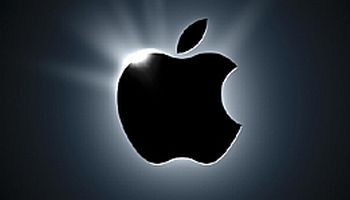During its fiscal fourth-quarter earnings call, Apple said that by the end of the period, 93 percent of Fortune 500 companies were testing or deploying its iPad across their businesses.
On the iPhone side, according to the company, 60 percent of those firms were testing or deploying Apple’s handset. Those figures are up from the 91 percent and 57 percent last quarter that tried out the iPad and iPhone, respectively.
The company also pointed out that Lowes is “rolling out over 40,000 iPhones” to its employees. Considering those figures, it appears that Apple is far more of an enterprise-focused company than many thought possible.
Over the years, the Cupertino, California-based firm has been viewed as a consumer favorite and an IT manager’s nightmare. But now, thanks to the iPhone and iPad, all that has changed. And for the first time, many of the world’s largest companies are warming to the idea of using its mobile devices.
Read on to find out why:
1. Doubt over RIM’s future
 Over the years, Research In Motion has been the corporate world’s favorite mobile-device provider. However, RIM looks lost and IT executives are starting to realise that. The company is trying to be too Apple-like in its products, such as the Storm 2, and its management seems unwilling to change its strategy, even though it’s losing ground to other, better products. That hasn’t gone unnoticed by major companies. It’s making them think twice about their support for RIM handsets.
Over the years, Research In Motion has been the corporate world’s favorite mobile-device provider. However, RIM looks lost and IT executives are starting to realise that. The company is trying to be too Apple-like in its products, such as the Storm 2, and its management seems unwilling to change its strategy, even though it’s losing ground to other, better products. That hasn’t gone unnoticed by major companies. It’s making them think twice about their support for RIM handsets.
2. The BlackBerry outage didn’t help
For many companies, this month’s BlackBerry outage hasn’t improved RIM’s chances retaining the loyalty of its Fortune 500 customers. Although that happened after Apple tallied Fortune 500 interest in its devices, the outage could very well drive those figures even higher this quarter. Employees at the top companies around the world rely on email and messaging to get their jobs done. With RIM’s services being down for more than a day in some cases, they weren’t able to do that. That was a serious hit to RIM’s credibility.
3. App availability
The success of Apple’s iPhone and iPad in the Fortune 500 might have quite a bit to do with the sheer number of applications available to users. Apple currently has over 500,000 applications in its App Store, including more than 140,000 designed for iPad users, alone. Other operating systems lack the sheer number of apps — especially corporate apps — that are found in Apple’s App Store. That fact matters to a lot of companies.
4. Consumerisation of IT Helps Apple
Over the last few years, consumerisation of IT has become an increasingly prevalent phenomenon in the corporate world. Employees are using their home devices in the office and IT staff, realising that there’s value in consumer-focused products, are warming to the idea of letting those products in. And as history has shown, it’s typically the world’s largest companies that become change agents. This time around, Apple is the beneficiary of that.
Continued on page 2




